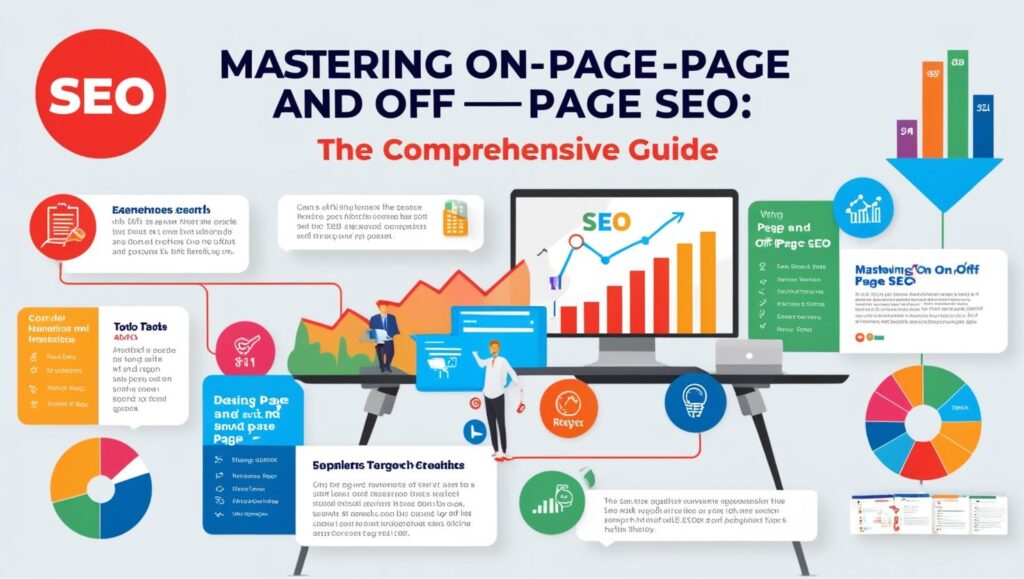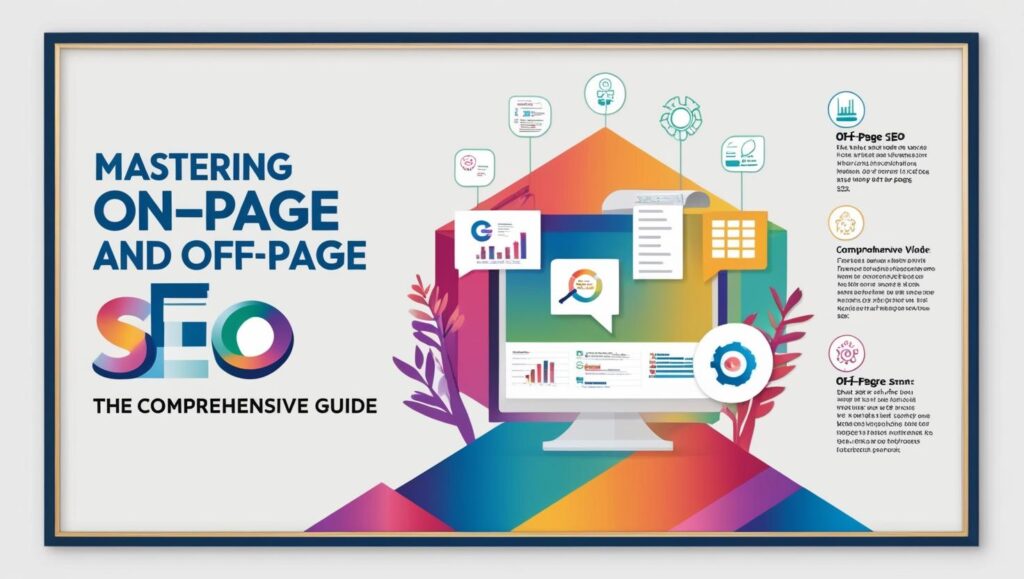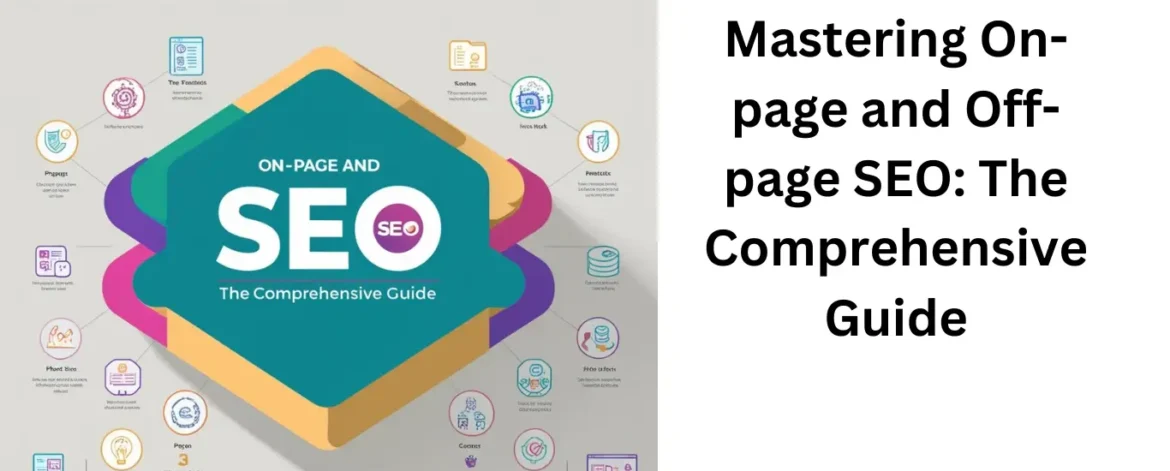Introduction:
If you’re an entrepreneur, business owner, or digital marketer, surely, you heard about the significant significance of SEO. How would one master on-page as well as off-page SEO to help boost results that can be measured? That’s the question in itself. This ultimate guide, I’ve broken down to explain it all step by step blended actionable tips and real examples.
What is On-page SEO and why does it matter?
Imagine your website as a storefront. On-page SEO is the way you arrange the shelves, clean the windows, and make sure every visitor feels welcomed. It’s all about optimizing the elements you control directly on your site to improve search visibility.
From researched keywords to the attention-grabbing titles and meta descriptions, on-page SEO helps search engines and users understand your content. Good quality content with the organic infusion of SEO keywords like “SEO” and “SEO services” makes it relevant.
Pro Tip: On-page SEO should focus on readability. Headers, bullet points, and visuals make content easy to scan and understand. The user experience will improve, and search engines will reward it.
How Does Off-Page SEO Help Enhance Your Online Authority?
Think of off-page SEO as your reputation. It is actually about what other people say about your brand and how much they trust you. This could include something like backlinks, social media mentions, and reviews.
Quality backlinks coming from authority sites are much like votes of confidence. For instance, if your page has been linked from a leading industry blog, then it’s a kind of sign that your content has value to search engines. Do not look down upon guest blogging, influencer collaborations, or any online community engagement.
Quick Tip: Quality trumps quantity. A single backlink from a trusted site trumps dozens from low-quality domains.

Can On-Page and Off-Page SEO Work Together?
Absolutely! They are like the dynamic duo, supporting and maximizing the output of your website. For instance, an optimized blog post is on-page but will get backlinks off-page when its content is insightful and shareable.
Suppose you have an e-commerce business, and you optimize your product pages with descriptive descriptions and key words for a good ranking. Then you were promoting those using bloggers and influencers. Improved rankings and increased sales are now achieved.
How Do You Measure SEO Success?
The best way to determine what works and where to adjust is to track your progress. Make use of Google Analytics and SEMrush to monitor traffic, rankings, and engagement. Be sure to set clear goals – maybe increasing organic visitors or improving conversions.
Envision doubling your traffic within six months through tweaking on-page and off-page strategies. It’s possible and achievable with persistence and the right attitude.

What Are the Common Mistakes to Avoid in SEO?
SEO is not a set-it-and-forget-it strategy. Keyword stuffing is one of the common mistakes, which not only looks spammy but also risks penalties from search engines. The other mistake is mobile optimization, which is a must with more users accessing through smartphones.
Finally, don’t forget that SEO takes time. Avoid instant results with black-hat tactics; they can harm your rankings in the long run.
For further inquiries contact us
FAQs:
1.What is on-page SEO, and why is it important?
On-page SEO refers to optimizing elements on your website, like content, meta tags, and keywords, to improve search engine rankings and user experience.
2.What are the key differences between on-page and off-page SEO?
On-page SEO focuses on internal website elements, while off-page SEO involves external factors like backlinks, social signals, and online reputation.
3.How do I build quality backlinks for off-page SEO?
You can build quality backlinks by guest blogging, collaborating with influencers, creating shareable content, and engaging in industry forums and communities.
4.How long does it take to see results from SEO efforts?
SEO is a long-term strategy. While some changes may show results in a few weeks, significant improvements often take 3-6 months of consistent effort.
5. Can I combine on-page and off-page SEO strategies effectively?
Yes! Use on-page optimization to create valuable content and off-page SEO to promote it through link-building, social media, and partnerships for maximum results


